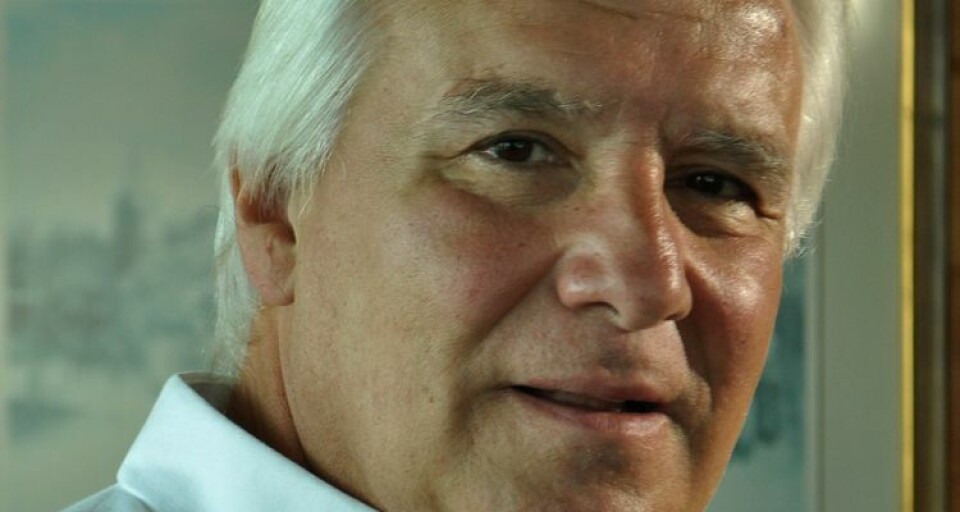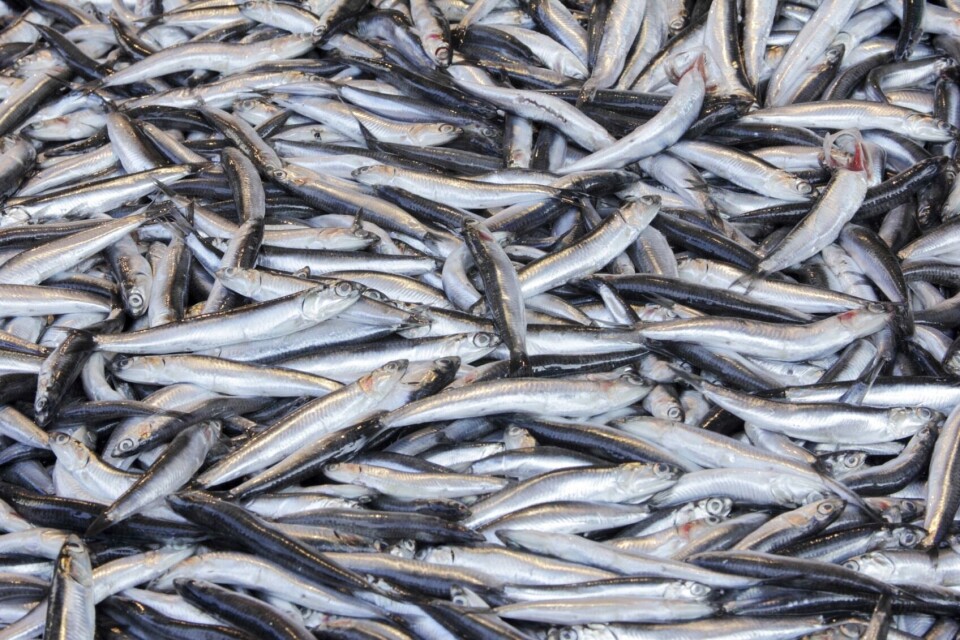
Fishmeal replacement 'damaging health and quality'
The substitution of fish-derived ingredients with vegetables in salmon feed is reaching its practical limit, and is compromising fish health and quality, according to Eduardo Goycoolea, president-elect of fishmeal and fish oil industry body IFFO.
Goycoolea, who takes up his new role on January 1, told fishfarmingexpert's sister site, salmonexpert.cl, that although supplies of fish oil were limited, enough fishmeal was available to triple current use in feed.
The Chilean, who is also executive director of New World Currents, the brand under which Chilean salmon farmers sell to China, said one of his priorities was "to continue demonstrating that fishmeal is the best existing protein, not only for human beings, but also for the culture fish, that grow more and better if they have more ingredients of marine origin in their diet".

Global demand
Goycoolea said: "The salmon feed industry 20 years ago used between 40 per cent and 50 per cent fishmeal in the diet and today the figure is in the range 10 per cent-15 per cent. There has been excessive substitution with vegetables, because producers need to meet the highest global demand and also be competitive in prices. It's a global trend and it would be reaching the limit."
He argued that "the balance that salmon producers have to find is between the cost of the food they buy and the quality of it, and the latter is reflected in the speed with which the fish grow, the weight they reach and the level of health they have during the specific cycle".
'Fish become sicker'
"It has been seen that when food has very little protein from marine foods, the fish become sicker, they have to be given more antibiotics, they have to undergo more treatments, obtaining lower results than expected," he added.
Goycoolea argued that "there are food producers that indicate that they work without fishmeal, and anyone can do it, however, it must be seen if it is good for salmon and the business of the companies. I think that is not what one would like for their operation".
Asked about the consequences of the decrease of marine ingredients in fish feed, he said that within his experience, he has no doubt that "if the main proteins and essential acids in the diet are reduced for salmon, fish that had greater consumption of vegetable products will not be as good in terms of quality".
Inferior quality
"Although it is not possible to define a direct relationship between one variable and another (food and diseases), I am convinced that the quality of food that the salmon industry has today, compared with that of 20 years ago, is inferior and that is why is that the business behaves more complex," he said.
"There is an American saying that 'fish eat fish', so if the food is replaced with vegetable products such as soy, in the end it is not the right animal to deliver to the consumer. Buying a lower-cost food generally has an effect of lower or slower growth of the salmon and its sanitary quality."
With regard to how the salmon consumer is affected by the lower use of fishmeal and fish oil in food for fish for human consumption, he said that "the content of EPA and DHA, which are essential amino acids transmitted by salmon to the population and that are provided by fishmeal and fish oil through omega 3, is much lower than what they had 20 years ago, for the food they currently receive. The nutritional quality is lower ".
No need to replace fishmeal
"Anyway, it should be noted that the salmon industry could not feed today with between 40 per cent and 50 per cent of fishmeal as before, because there is not enough. That is why it has been replaced by vegetable products, however, it is reaching a limit, "said Goycoolea.
Asked what was the ideal percentage of fishmeal and fish oil in the diet of farmed salmon, he said: "I cannot say it technically, but I do know that, with respect to fish oil, the utilisation for the salmon is high, so being a scarce resource, you should find alternatives in other sources of food, such as algae."
"As for fishmeal, there is enough to triple the current use in the sector, so there is no need to continue replacing it at the risk of generating inappropriate aquaculture production. In addition, the large adjustments to the rise of its price have already materialised, and we will probably see more limited movements in the future, "he concluded.























































